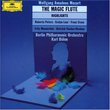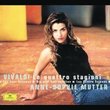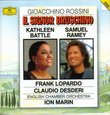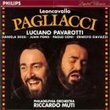| All Artists: Verdi, Tomowa-Sintow, Kovats, Miller Title: Opera Highlights: Nabucco Members Wishing: 1 Total Copies: 0 Label: Delta Original Release Date: 1/1/2000 Re-Release Date: 3/8/1994 Genre: Classical Style: Opera & Classical Vocal Number of Discs: 1 SwapaCD Credits: 1 UPC: 018111412223 |
Search - Verdi, Tomowa-Sintow, Kovats :: Opera Highlights: Nabucco
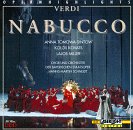 | Verdi, Tomowa-Sintow, Kovats Opera Highlights: Nabucco Genre: Classical
|
Larger Image |
CD DetailsSimilar CDsSimilarly Requested CDs |
CD ReviewsIt is only highlights BDSinC | Calgary, Alberta, Canada | 08/04/2005 (5 out of 5 stars) "I gave it a five because for what this recording is, highlights, it is not bad. However, the work is approached very differently than is customary. It has a very straight forward reading of the score, every mark as indicated, and at the same time feels at times wanting. The overture if played very "to the point." By that, I mean, there is no attempt to make it say more, or have more meaning than it has -- the overture to a work. That may sound like a cut, but in reality, it is not. The overture is wonderful, played well, and prepares you for the work to come. It sets the mood. It is not dragged or too fast. The orchestral balance is very good. There is excitement, even if it is played at a slightly slower tempo than we are accustomed to hearing. The stretta sections of the overture are played with a thrilling thrust forward, but not rushed so the delicate texture of the writing is lost.
Excepting Anna Tomowa-Sintow, I have heard of none of the singers. Once again, I discover just because someone is not a big name hardly means they are poor at their job, or inferior in any way. I have a live recording of Nabucco sung by singers not even mentioned on that label released by "A night at the Opera" conducted by Giorio Notev. And even though the sound is not great the singing is wonderful. Well, it is like that here, excepting the sound is wonderful. The singers are very dedicated to their performances. Manfred Schenk makes a powerful and fearful prophet of Jehovah, Zacharias. He manages his voice well. There is a slight bit of strain in the upper note, but it is not distracting at all. Abigail's great scene and aria that begin act two are Anna Tomowa-Sintow's great opportunity to really shine. I must admit, I was listening with much curiosity, for I am familiar with her singing in Mozart, but to sing one of Verdi's heaviest soprano roles, well, I had my doubts. Could she be another Dimitrova, or any other super dramatic soprano with the power needed for the role? Well, I was surprised! Her voice no longer just sounded like a Mozart singer, she truly was able to move ahead with Verdi. I wasn't able to discover a great deal of characterization, but then, it is not easy to do so with only one aria. But how did she stand when it came to the incredible end of the recitative, that horrible ffff High C and the two octave drop below? Well, she got the C with spades, but the drop sounded like her voice shifted to reach it, but there again, the change was not bothersome at all. The slow aria ("Anch'io dischiuso un giorno") is sung with great legato and a longing that is very touching. Verdi's portamenti are respected and sung (like many conductors these days will not allow). The tempo is slower than we are used to, but it is in the recitative with Chorus that breaks the two parts of this aria where we find the most unusual changes. The chorus is SLOW, I mean Slow; the movement we are used to, the excitement of the soldiers coming in to tell Abigail the information she wanted just is not rushing forward like we normally hear, rather they come in very "stately." It is sort of jarring to hear the chorus coming in with the same tempo we just heard the slow contemplative part of the aria. Were I conducting it, I would never make this mistake, for it robs the scene of the momentum it needs. Then the cabaletta itself is sung at a much slower pace than is customary, again, not what we are used to, and in a way then lacks the thrust it needs. However, that said, it is still well sung, all thrills actually heard. It is not repeated. Zacharias aria that follows it is well sung, thoughtful, and tender. There are great many subtliest expressed. The orchestra sets the mood well in those introductory bars. The chorus that follows is the most famous in the opera, and well, it is sung as we expect it to be. We conclude with the aria for Nabucco himself sung by Lajos Miller. He is a fine baritone, a Verdi baritone with a good top. Sadly, that is all we get of his character. His characterization is good, and one is left wondering what he and Tomowa-Sintow would have been like in the Abigaile-Nabucco duet (which is not included at all). Overall the recording is very good, and the selection of the pieces is quite good. So often in highlights, especially of late, we get most of the best and well-known music left off (like a highlight version of Silvia Sasse in Macbeth, the sleep walking scene is no where to be seen, and her great moment is not there; the entire highlights deal mostly with the character of Macbeth himself). Everything in these highlights is well planned and balanced. Sometime in me tells me this is really a compilation from a complete recording, but I have not fount it, if that is the case. This is an exellent introduction to the work for those unfamiliar with it. " |

 Track Listings (7) - Disc #1
Track Listings (7) - Disc #1
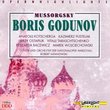
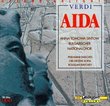
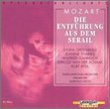
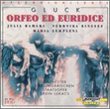
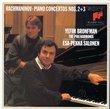
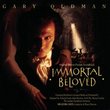
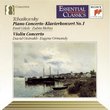
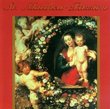
![Delibes - Lakmé / Mesplé, Burles, Soyer, Millet, Opéra-Comique, Lombard [highlights]](https://nationalbookswap.com/cd//m/63/8663/6008663.jpg)
